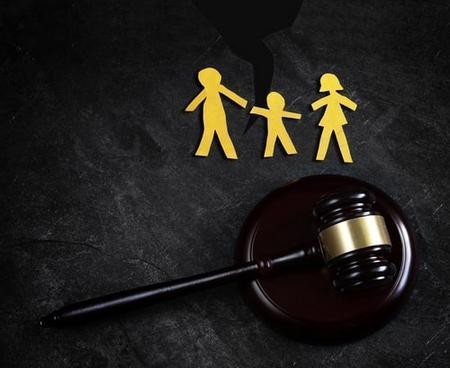Recent Blog Posts
How Does Divorce in Illinois Affect the Family Home?
 Most couples buy a home at some point in their marriage. The family home is often the most valuable asset a couple owns, and the prospect of figuring out how to divide it in a divorce can be daunting. Fortunately, Illinois courts have established means of handling property division during divorce, and homes are no exception.
Most couples buy a home at some point in their marriage. The family home is often the most valuable asset a couple owns, and the prospect of figuring out how to divide it in a divorce can be daunting. Fortunately, Illinois courts have established means of handling property division during divorce, and homes are no exception.
Who Gets to Keep the House?
Sometimes, it is necessary for a divorcing couple to sell the family home and divide the equity. However, it is common for one spouse to keep the home. Which spouse that will be may depend on a variety of factors, including each spouse’s financial situation, employment, and personal preferences. If there are children involved, the parent who is given the most parenting time may get to keep the home. The spouse who leaves the home may be able to recover their share of the home’s value in one of several ways.
What if I Do Not Want Custody of My Child?
 Although some parents will act aggressively to get full parental responsibilities for their children, others feel differently. You may not want full or even partial custody of your child for a number of reasons. Your job, your children from a previous relationship, your desire for privacy, or your feelings that you are not equipped to provide the care your child needs are all possible reasons for wanting your child’s other parent to have the majority of the childcare responsibilities.
Although some parents will act aggressively to get full parental responsibilities for their children, others feel differently. You may not want full or even partial custody of your child for a number of reasons. Your job, your children from a previous relationship, your desire for privacy, or your feelings that you are not equipped to provide the care your child needs are all possible reasons for wanting your child’s other parent to have the majority of the childcare responsibilities.
What is Best for the Child?
Whether during divorce proceedings or when establishing parental responsibilities between unmarried parents, the court will make decisions according to what is in the best interests of the child. The court also takes the preferences of the parents and the child into account. If you do not want custody of your child at all, the court will most likely award full custody to the child’s other parent.
How Does Divorce in Illinois Affect Retirement Savings?
 Retirement funds, such as pensions and 401(k) accounts, are often a substantial issue in an Illinois divorce. For a couple who have earned average incomes throughout the duration of their marriage, retirement accounts can make up the majority of their accumulated wealth. As such, spouses are often concerned with the impact of a division of retirement savings as a consequence of their divorce.
Retirement funds, such as pensions and 401(k) accounts, are often a substantial issue in an Illinois divorce. For a couple who have earned average incomes throughout the duration of their marriage, retirement accounts can make up the majority of their accumulated wealth. As such, spouses are often concerned with the impact of a division of retirement savings as a consequence of their divorce.
In our last post, we discussed the impact of divorce on Social Security benefits. Here, we will examine the way that retirement accounts are handled in a divorce.
401(k) and Contribution Plans
Unless spouses signed a valid prenuptial agreement stating otherwise, 401(k) plans with contributions during the marriage are considered marital property and may be subject to division. Though contributions from before the marriage may remain non-marital assets, contributions during the marriage belong to the marital estate.
What Kinds of Property are Divided in an Illinois Divorce?
 Everyone knows that when a couple divorces, they split everything they own 50/50. Right? Wrong! Property division in divorce is actually much more complex than just throwing everything into a big pot and then splitting it down the middle.
Everyone knows that when a couple divorces, they split everything they own 50/50. Right? Wrong! Property division in divorce is actually much more complex than just throwing everything into a big pot and then splitting it down the middle.
In this blog, we will address some of the most common types of property that must be divided in a divorce, and how Illinois divorce courts tend to divide property. Keep in mind that Illinois is an “equitable distribution” state, meaning that rather than dividing assets 50/50, assets will be divided fairly according to a number of factors that the court will consider.
Homes and Land
The marital home is often the most valuable asset a couple owns together. Depending on whether the couple has children and one of the spouses wishes to stay in the home, the couple may choose to have one spouse buy out the other spouse’s value in the home, or sell the home and split the proceeds.
Can I Use Character Witnesses in My Illinois Divorce?
 In a high-conflict divorce where you and your spouse are unable to agree on anything, much less who should have custody or parental responsibilities for your child, character witnesses can be a valuable advantage to help you prove that living with you is in your child’s best interests. Here, we will explore the kinds of character witnesses you might use, as well as what a witness does and what you should do if a witness is reluctant to testify.
In a high-conflict divorce where you and your spouse are unable to agree on anything, much less who should have custody or parental responsibilities for your child, character witnesses can be a valuable advantage to help you prove that living with you is in your child’s best interests. Here, we will explore the kinds of character witnesses you might use, as well as what a witness does and what you should do if a witness is reluctant to testify.
Types of Witnesses
There are essentially three types of witnesses that might appear in divorce proceedings. An independent expert witness, such as a court-appointed psychologist, testifies about a specific topic but does not work for either spouse. A controlled expert witness likewise testifies about a specific topic, but is retained or paid for by one of the parties.
A lay witness–the most common type of character witness–is not an expert, and ideally is someone who is not biased in your favor. This could be a teacher, a babysitter, a neighbor, or anyone else who has seen interactions between you, your spouse, and your children. A character witness can testify regarding your favorable parenting abilities, or regarding your spouse’s unfavorable abilities. Family members may be seen as biased in your favor, so getting a variety of character witnesses may be more beneficial in supporting your case.
Can My Ex Move Out of State with Our Child?
 If you share a child with your ex, and they are considering moving out of Illinois, you may feel nervous about what this means for the future of your relationship with your child. Fortunately, the Illinois Marriage and Dissolution of Marriage Act includes provisions limiting how far custodial parents can move with their children without court approval.
If you share a child with your ex, and they are considering moving out of Illinois, you may feel nervous about what this means for the future of your relationship with your child. Fortunately, the Illinois Marriage and Dissolution of Marriage Act includes provisions limiting how far custodial parents can move with their children without court approval.
When is a Parent in Illinois Allowed to Move with a Child?
If your ex has custodial rights or parental responsibilities for at least half of the time, they are able to ask permission from the court to move and take the child with them.
A parent who lives in Cook, DuPage, Lake, Kane, McHenry, or Will County can move with a child within Illinois up to 25 miles away from where they lived previously, without receiving court approval. A parent who lives in any other county may move up to 50 miles away. Likewise, a parent who lives near the Illinois border with any other state may move into a different state as long as they remain within 25 miles of their previous location.
How Does an Illinois Divorce Affect Social Security Benefits?
 There are many factors to consider during your Illinois divorce, and one that is frequently overlooked is how Social Security benefits are handled. Social Security benefits are more complicated than other retirement assets like a 401(k), because federal law prohibits assigning, dividing, or garnishing Social Security benefits. This means that state courts cannot even consider Social Security benefits in the division of marital property, because dividing and allocating them–even by anticipating a larger future benefit for one spouse and allocating marital property to the other spouse accordingly–would contradict federal law.
There are many factors to consider during your Illinois divorce, and one that is frequently overlooked is how Social Security benefits are handled. Social Security benefits are more complicated than other retirement assets like a 401(k), because federal law prohibits assigning, dividing, or garnishing Social Security benefits. This means that state courts cannot even consider Social Security benefits in the division of marital property, because dividing and allocating them–even by anticipating a larger future benefit for one spouse and allocating marital property to the other spouse accordingly–would contradict federal law.
However, that does not mean that you are not entitled to your own Social Security benefits according to your former spouse’s benefits. Federal law does allow for certain circumstances in which a divorced wife or husband of an insured person is entitled to Social Security benefits based on their former spouse’s work record.
4 Tips For Self-Care During Your Illinois Divorce
 Divorce is stressful. This is such a truism it hardly needs to be said. Between splitting up assets, negotiating with your former partner, taking care of any children, and trying to keep a household and career running smoothly, self-care can fall by the wayside.
Divorce is stressful. This is such a truism it hardly needs to be said. Between splitting up assets, negotiating with your former partner, taking care of any children, and trying to keep a household and career running smoothly, self-care can fall by the wayside.
Ongoing stress is terrible for our mental and physical health, and people will often suffer from illness or chronic pain after a divorce. Anxiety and depression are also common, as is weight gain or loss, substance abuse, and even heart disease. Here are a few things you can do to help improve your health and reduce stress during a divorce.
Exercise
The benefits of exercise extend beyond physical health. Mental health also improves due to better digestion, heart rate, and hormone regulation. You will feel better all around if you can remember to stay active during your divorce–even if you are exhausted.
Get Enough Sleep
Lack of sleep and overwhelming stress can create a devastating one-two punch on your health. A full 7 to 8 hours of sleep is important, especially when your mind and body are trying to recover from stress. Try to create a daily routine for you and your family, and then stick to it. Schedule sleep and treat it like you would an important work appointment–do not miss it or let scheduling conflicts get in the way.
Discovering Hidden Assets in an Illinois Divorce
 Once a couple knows their marriage is over, spouses preparing to divorce in Illinois can become very competitive and hostile. One tactic a spouse might employ in an effort to get revenge, pay less future spousal support, or otherwise get the upper hand in the divorce, is to hide assets and sources of income.
Once a couple knows their marriage is over, spouses preparing to divorce in Illinois can become very competitive and hostile. One tactic a spouse might employ in an effort to get revenge, pay less future spousal support, or otherwise get the upper hand in the divorce, is to hide assets and sources of income.
This tactic is more common in high asset divorces, when a couple’s financial picture may be complex and one spouse may manage many or most of the assets, leaving the other spouse in the dark. Finding hidden assets and income that one spouse tries to hide from the other may even require the help of a professional with a special set of skills. Here are several things to keep in mind if you think your spouse may be hiding assets.
Is an Inheritance Considered Marital Property in an Illinois Divorce?
 When two people are married, most of the assets they acquire throughout the course of their marriage are considered marital property. During a divorce, a court will determine whether certain assets are considered marital or non-marital.
When two people are married, most of the assets they acquire throughout the course of their marriage are considered marital property. During a divorce, a court will determine whether certain assets are considered marital or non-marital.
If an asset is determined not to be marital property, the court has no legal authority to award part of the asset to the non-owner spouse in a divorce. Generally, assets acquired by inheritance, gift, legacy, or descent are not considered marital property in Illinois, but the way an asset is treated after the inheritance may render it marital property.
What is an Inheritance?
Inheritances are monies, properties, or other assets that are given to someone through an estate planning document, like a will, or through intestate succession. If someone inherits an asset while they are married, it is generally considered non-marital property, as long as it is possible to prove that the asset was specifically given to the recipient by the deceased.












